Why Most CRMs Fail, Even with AI (And How You Can Actually Fix Yours)
If you’re running a business in the UAE, you’ve probably heard all the hype about CRMs, AI-powered, data-driven, magical tools that can predict your next sale, automate follow-ups, and make your teams unstoppable. Sounds great, right?
The problem: for the majority of businesses, that promise falls short. Teams are left wrestling with an array of tools, the information still disparate, and the insights promised in the CRM nowhere in sight. Sales personnel can’t see their leads across multiple channels, the account team can’t close accounts quickly enough, and the manager ends up guessing more than making a call.
Small and mid-sized businesses experience this bite more intensely. Not having the integration of sales, finances, HR, and inventory in the system, CRMs become “another tool”, good to possess, but actually doing very little in the direction of helping you grow.
That’s where the integration of CRM and ERP comes in. By connecting customer management with the account, HR, and inventory all in the same platform, UAE organizations can get their CRM finally delivering and become a real growth engine and less of a siloed dashboard.
In the sections ahead, we’ll dive into why most CRMs fail, why AI alone isn’t enough, and how HostBooks ERP with CRM features can solve these issues and help your business scale efficiently.
The Most Frequent Causes of CRM Failures and Why UAE Firms Struggle the Most
Let’s be blunt, the fact that CRMs are failing isn’t that the software sucks, but that most see the software as some kind of magic wand and not a strategic asset. In the UAE, the issue only becomes more serious with multi-location setups, distributed teams, and high customer expectations.
- Data Silos Between Departments
Sales, finance, HR, and inventory are in siloed systems far too often. When your CRM system isn’t able to talk with the other systems, the information stays siloed. That hot lead in sales becomes a high-risk opportunity in the view of the finance team, and no one knows until too late. - AI Without Context
Few CRMs offer AI-driven insights, but if the AI can’t see complete organizational data, then it’s really making assumptions. UAE companies with operations that span multiple departments require AI that can comprehend procurement cycles, trends in inventory, and fiscal well-being in addition to sales trends. - Lack of Regional Adaptation
CRMs off the shelf are almost never designed with UAE-specifics in mind: multi-currency processing, area labor laws, or customer communication preferences. Without them, even the most hi-tech CRM can be clumsy and difficult to implement. - Overemphasization of Features, Not Functionality
Adding all the possible features is good and well, but if it does not align with your team’s actual activities, then adoption goes out the window. Sales folks are likely to skip the updates, the finance team can still use Excel, and the CRM becomes “nice to have” instead of mission-critical.
The Real Reason CRMs Fail and How HostBooks Bridges the Gap
That is, most CRMs are unsuccessful since they are not linked, contextual, and locally optimized. The good news? That’s exactly the gap CRM ERP solutions for business, like HostBooks, are built to fix.
Why UAE Small and Medium-Sized Businesses Need CRM ERP, Not a Stand-Alone CRM
The concept is, UAE small businesses all begin with a standalone CRM assuming this suffices. But the moment you are scaling up across locations, suppliers, or product lines, the gaps are exposed. Thats where the convergence of ERP and CRM occurs.
Common Vision for the Business
Best ERP and CRM software does more than manage deals and leads; it all links together sales, inventory, finances, and HR in one location. UAE businesses with multiple currencies, local labor laws, and complex supplier networks benefit from the single view immensely. You can actually see at which point in the sales process a lead resides, how inventory stands, and whether the deal’s been financed in real-time.
Automation That Really Works
Automation is productive only if it’s smart. In Cloud ERP with CRM, repetitive tasks like follow-ups, preparing invoices, and reminding payments are done automatically and in accordance with UAE laws. Time spent by your team in planning and bonding and not in chasing paperwork.
Data-Driven Decisions
The AI in a CRM ERP roll-out is more than flashy, it uses information across your business to provide answers you can take action on. Need to predict the top-selling products for the next quarter? Or the customer segment most likely to churn? An ERP with embedded CRM can provide hard answers, not charts.
How AI in CRM Enables Predictive Growth and Revenue Optimization
The majority of UAE businesses implement AI in their CRM with the expectation of swift results, but with no operational alignment and no context, AI insights remain untouched. A full CRM solution like HostBooks does the opposite by connecting AI intelligence with every single business process.
Predictive Sales Forecasting
Historical sales, customer activity, seasonal cycles, and inventory are analyzed by the AI in the process of predicting future revenue potential. For UAE multi-location businesses, that means you can estimate demand spikes, stock can be optimized and sales-missed can be avoided, all before opportunity is lost.
Customer Segmentation and Churn Prediction
AI-based analytics can determine high-value customers, at-risk accounts, and buying behaviors. UAE companies can then proactively target campaigns or interaction activities so they can grow retention, shrink churn, and maximize customer value over a customer’s lifetime.
Dynamic Pricing and Stock Optimization
Through the real-time analysis of market trends, competitor prices, and stock levels, AI can recommend the optimal price and reorder points. To Dubai- or Abu-Dhabi-based retailers and traders, this means less stockout, broader margins, and better standing in the market.
Revenue-Linked Decision Making Across Departmental Lines
AI in ERP doesn’t only help sales, it informs finance, procurement, and operations. For example, a predicted high-demand product triggers automated procurement approvals, alerts warehouse teams, and updates financial forecasts simultaneously, aligning the entire organization toward growth.
Scenario Planning and What-If Analysis
New AI allows businesses to prototype alternative business scenarios: What if the supplier misses a shipment? What if the key account promises a 20% upsurge in orders? By creating models prior to events occurring, managers can take proactive, fact-driven decisions more quickly and with less risk than the competition.
Pitfalls Common Even in AI-Powered CRMs and How HostBooks Remedies Them
Even with AI, most CRMs are unable to provide real business value, particularly in the UAE in small businesses. Here’s why:
- Siloed Data
Some CRMs appear high-end but cannot integrate with other programs. Sales, finances, inventory, and HR remain siloed, creating blind spots. The result is lag, duplicate entry, and report errors. - Generic AI Recommendations
AI only works with the volume and background it’s trained with. Stand-alone CRMs typically offer superficial suggestions and ignore inventory stock, local regulations, and multi-location operations, which are prevalent in the UAE. - Manual Overload Persists
Automation almost always only automates menial tasks. Teams are still losing hours moving data from spreadsheet to spreadsheet, tracking down leads manually, or matching invoices up.
How HostBooks CRM ERP Addresses These Problems
Integrated Platform
Its integration of CRM, accounting, HR, and inventory in one place and offering UAE organizations a 360° view across operations.
Intelligent, Contextually Aware AI
Its AI does more than evaluate leads; it also takes into account stock levels, current projects, and history of payments while making actionable suggestions.
Automation Across Functions
Repetitive tasks like invoice generation, follow-ups, and payroll are automated end-to-end, reducing manual work drastically.
Compliance-Ready
In-built capabilities are in sync with UAE labor laws and money regulations, so your business remains audit-compliant.
With HostBooks, your CRM is more than intelligent; it’s strategic, interconnected, and designed to grow your business at maximum efficiency.
How UAE Businesses Benefit from CRM ERP Integration
How does the entire CRM ERP integration really change the game for UAE businesses?
- Streamlined Sales and Operations
They no longer manage multiple apps or sheets. Sales teams can see in real-time stock levels, outstanding invoices, and customer history with the ERP with CRM capabilities in HostBooks. Its clarity reduces sales cycles and avoids the over-promise and delivery problem which UAE trading and retail businesses commonly face. - Data-Driven Decisions
Through machine learning and pattern recognition in sales, inventory, and finances, the manager receives actionable insights and not raw information. For example, a software like HostBooks can point out the products perennially performing below potential, the demand in the coming quarter, and the potential price variations in real-time. - Compliance and Risk Management
UAE businesses are also subject to stringent labor compliance and financial reporting demands. HostBooks streamlines essential compliance activities, from report generation for audit-ready status to monitoring HR compliance, lowering the chances of penalties or compliance hiccups. - Improved Customer Experience
Integrated Cloud ERP and CRM result in all customer interaction being current at the moment they happen. Support, sales, and marketing all share the same information, so precise communication, timely follow-ups, and increased retention become hallmarks in UAE competitive marketplaces. - Scalability Without Headaches
Whether you grow in Dubai, Abu Dhabi, or anywhere in the other Emirates, scaling with HostBooks can be done effortlessly. Multiple locations, multiple warehouses, and multiple product lines are streamlined from one platform, eliminating the confusion among siloed systems.
By combining AI-driven CRM insights with process workflows, UAE businesses can finally unlock customer data into actionable growth.
How HostBooks CRM ERP Future-Proofs UAE Businesses
Once you’ve avoided the usual pitfalls, the magic really happens when your ERP with CRM capabilities really propels growth and efficiency. UAE’s businesses require a solution that isn’t only intelligent nowadays but that adapts and grows with tomorrow’s needs.
- Integrated Data for Intelligent Decisions
HostBooks centralizes sales, accounting, HR, and inventory all in one platform. For UAE organizations with multiple branches, currency, or teams, this allows them to take real-time decisions based on info and not siloed spreadsheet or reports. - AI-Powered Automation
From lead prioritization to follow-ups, from invoice generation to stock alerts, HostBooks automates routine functions, minimizing errors and allowing your teams to focus more on strategy. Its AI based on pattern learning suggests the next best action and enables UAE businesses to move quickly in competitive marketplaces. - Compliance Incorporated
Local regulations, labor regulations, and reporting are all tricky to maneuver. HostBooks manages this by integrating compliance processes with day-to-day procedures, keeping businesses ready for an audit without the added manual work. - Scalable for Growth
Whether the company operates at a single location in Dubai or at several locations in the Emirates, the business grows with them. Modular building enables the company to add new capabilities, such as advanced CRM analytics or inventory tracking, without reengineering processes. - Ongoing Improvement and Insight
UAE companies can forecast customer demand, operationalize ease, and optimize sale plans with predictive analytics and actionable dashboards. Data becomes decisions, and not charts, with HostBooks.
Through the incorporation of CRM ERP integration, automation, and local intelligence, HostBooks prepares UAE businesses for the future challenges in and after the year 2025 and propels productivity, profitability, and sustainable growth.
From CRM Failures to Growth Opportunities
In the UAE’s busy business world, CRM failures are seldom due to the technology itself; they are a result of silicated systems, lack of adoption, and mismatch with operational realities. AI can’t resolve these issues if the processes are isolated or compliance requirements are ignored.
The solution resides in an integrated ERP with CRM functions that combines AI-driven insights, automation, and compliance alignment. HostBooks CRM ERP closes those gaps with all-in-one sales, account, HR, and inventory integration, automation of day jobs, and forward-looking insights specifically built for UAE businesses.
By making the transition from dashboards to actionable intelligence, organizations can have a 360° view of customers, simplify processes, and make faster, more savvy decisions.
Furthermore, scalability and modular architecture extend the value equation so the system keeps pace with organizations growing, at sites or product lines.
The message for UAE decision-makers is simple: successful CRM implementation isn’t a matter of bolt-on AI, but a system that ties people together, processes, and data, and propels local regulations and drives business performance continually.
The right attitude and the right platform can turn the failures with CRM into the measurable growth, efficiency, and competitive advantage in the year 2025 and beyond.

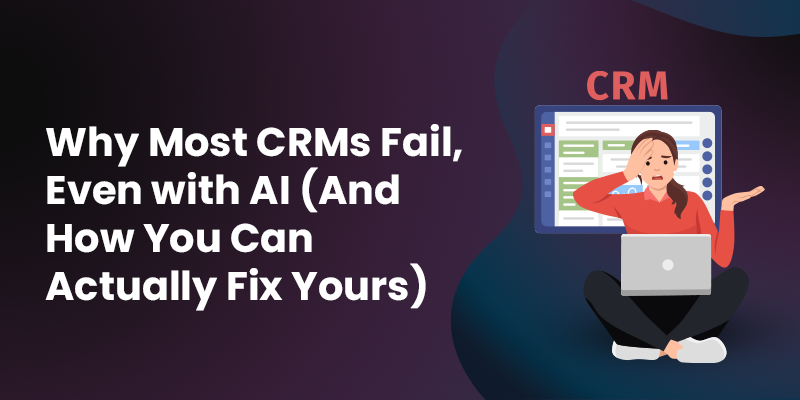
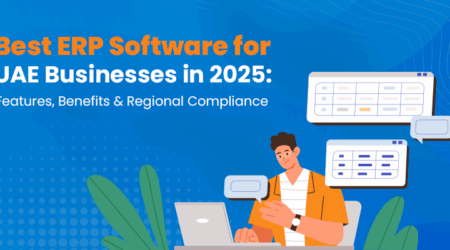
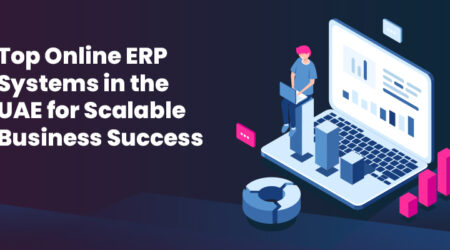
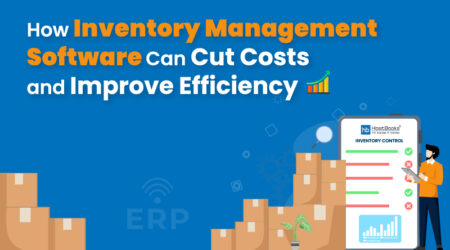
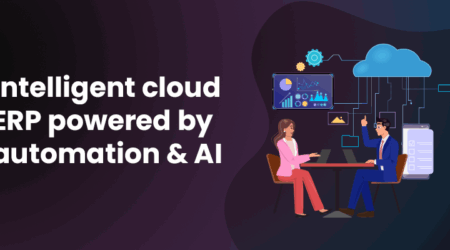
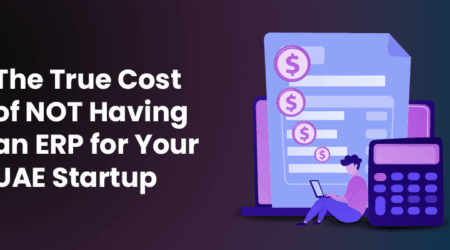
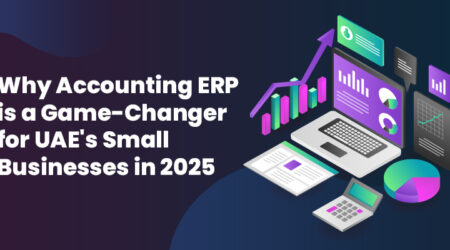
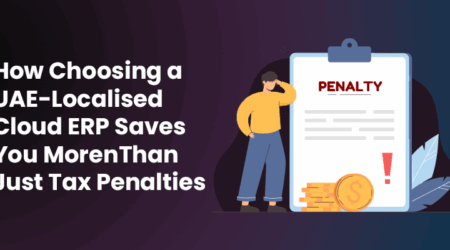
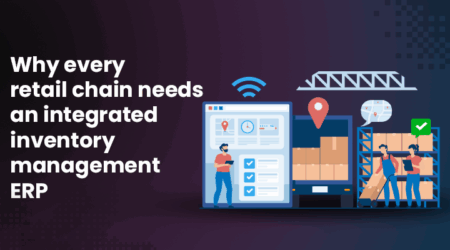
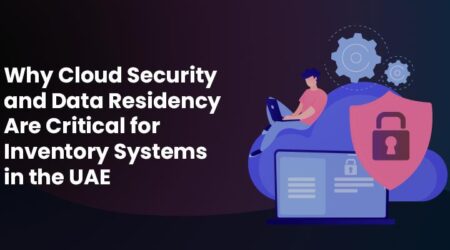
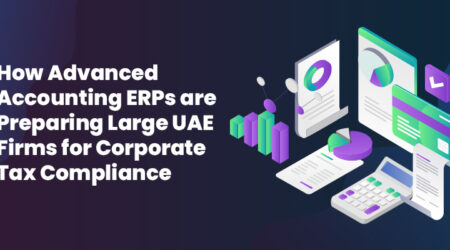
Leave a Reply